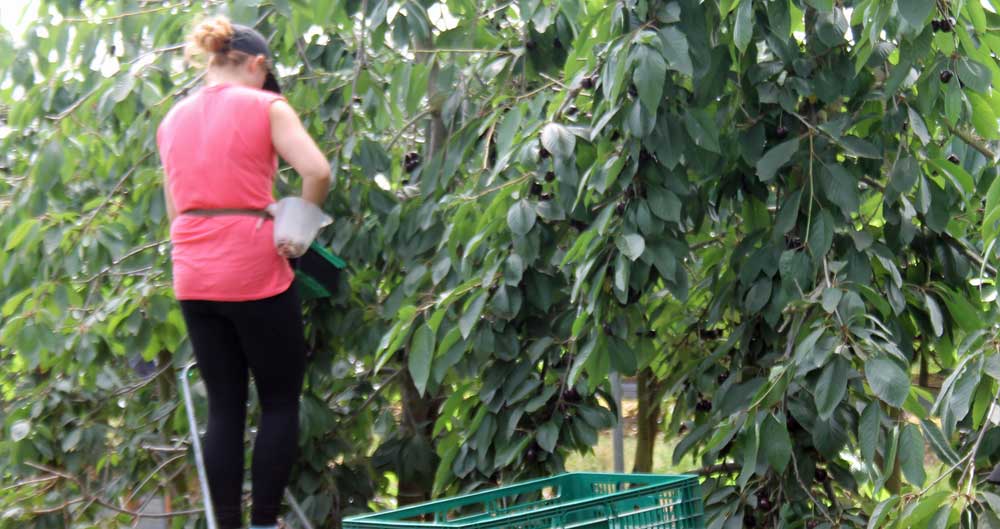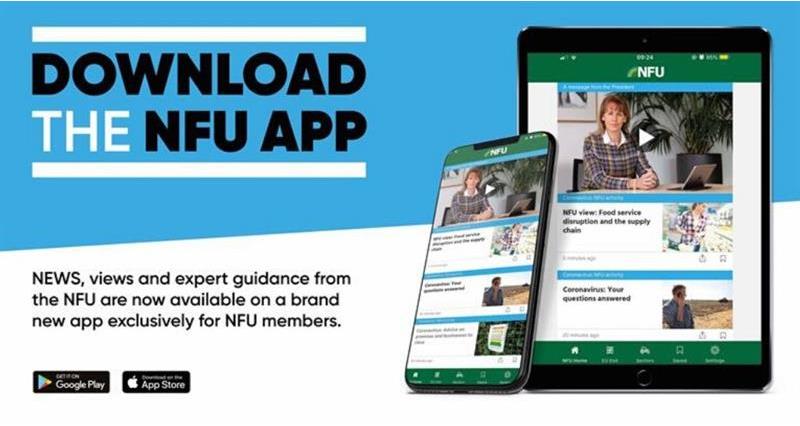Updated 24 April 2020:
Prior to the COVID-19 outbreak, the NFU’s focus had been on ensuring?the sector?had access to?sufficient?workers in 2021 when freedom of movement is due to end. We had successfully secured the expansion of the seasonal workers pilot to 10,000 and had ramped up efforts to get a full scheme for up to 70,000 in time to enable recruitment for the 2021 season.
Over the past couple of months, the crisis has been much more immediate, with challenges in getting the workers we need this season. It is a global problem, with many countries already putting in place measures to ensure migrant workers can still travel in order to pick and pack crops.
The NFU has been in contact daily with key stakeholders, government departments, members and labour providers. There are a range of mitigation measures, some of which have already been addressed, as follows:
1. Recruiting from within the EU
Fears that flights would be grounded did not immediately materialise and while some countries have tightened rules, some commercial flights and chartered flights are still moving. Many businesses and labour providers are working closely with airlines to ensure planes can be filled to make it economically viable to bring people into the UK. EU workers are also still keen to come to the UK as the prolonged lockdown is creating financial challenges while people are out of work.
There have been some reports of workers being asked to explain why they are arriving in the UK, though these are extremely isolated and should not cause any undue concern. Members should be prepared to provide workers with a letter and contact details which they can show when they arrive in the UK if they are asked.
2. Recruiting from within the UK
While around 99% of seasonal roles are usually filled with EU nationals, UK businesses and labour providers have developed campaigns to employ significant numbers from within the UK. Not only is this necessary to ensure any shortages are filled, but is important to support UK workers who may find themselves out of work following the closure or shut down of their industry.
To coordinate these efforts Defra has launched the Pick For Britain campaign with the backing of the NFU and other key stakeholders. The new www.pickforbritain.org.uk website enables applicants to find businesses that are currently recruiting. Farm businesses or labour providers that want to be listed on the site need to fill in the ‘Are You An Employer’ form.
The response from the general public has been very high, though many are looking for very short term commitments (perhaps a few hours, or a couple of half days a week) which can be more difficult for businesses to manage.
3. Recruiting through the Seasonal Workers Pilot scheme
Recruitment through the pilot scheme has been hampered by the closure of visa offices in the source countries. While some recruitment took place in March, it is largely on hold. The operators of the scheme are in discussions with Defra to identify ways to enable the issuing of visas in order to open up the scheme.
4. Sharing workers between businesses
NFU win: Only GLAA licenced operators are legally able to provide workers to another business. However, with some horticultural businesses seeing a downturn in trade at the same time that others are busily recruiting, the NFU called for a simplification of the licensing application so that businesses could get a licence and offer their workers out to other businesses. On 1 April, the GLAA announced it has?introduced a temporary licensing scheme to support the food production sector in accessing the labour it needs during this difficult time.
The licences will last for three months and will be granted to businesses operating within the wider labour supply industry and who wish to support labour providers who currently hold GLAA licences.
In line with NFU asks to reduce the costs and timescales of applications, this process will be free and the GLAA aims to make decisions on applications within five days. Find out more at the GLAA website here.
5. Employing furloughed workers
NFU win: Following NFU lobbying, the government confirmed on 4 April that furloughed workers can take up employment elsewhere and retain their furlough payment. This is a significant win for the industry and means that the pool of UK labour able to take up farm work is as large as possible.
This is what the government advice says:
“If your contract allows, you may undertake other employment while your current employer has placed you on furlough, and this will not affect the grant that they can claim under the scheme. You will need to be able to return to work for the employer that has placed you on furlough if they decide to stop furloughing you, and you must be able to undertake any training they require while on furlough. If you take on new employment, you should make sure you complete the starter checklist form with your new employer correctly. If you are furloughed from another employment, you should complete Statement C. Any activities undertaken while on furlough must be in line with the latest Public Health guidance during the COVID-19 outbreak.”
Read the full guide for furloughed workers at the Gov.uk website here.
6. Safeguarding workers on site
It is critical that all businesses do what they can to ensure the safety of their workers and stop the spread of coronavirus. New guidance from Public Health England (and hosted on the AHDB website) has been published to highlight good practice and to show what can and should be done when accommodating, transporting and managing groups of workers on farm and in packhouses.
Many businesses have implemented new shift patterns, provided PPE, screens in packhouses and further training for staff to ensure they are safe and act responsibly.
7. Accessing workers in 2021
As yet, the government and EU have not chosen to extend the Brexit transition period which means a new UK immigration system is still expected at the beginning of 2021. With the focus on short term coronavirus impacts, the timetable for developing and implementing a new immigration system is remarkably short.
The NFU continues to call on government to deliver a full seasonal worker scheme to enable the industry to access the 70,000 workers it needs each year. It is critical this is in place in the autumn of this year so that businesses can begin recruitment for next season.
More from the NFU:
- Coronavirus: What the NFU is doing to help members
- Coronavirus: Download the essential journey certificate
- Coronavirus: NFU comment on impact on farming and its workers
Coronavirus: Updates and advice
This news hub on NFUonline will be updated regularly to keep you up to date with what you need to know and how to deal with the various issues raised by coronavirus. Visit the hub.

